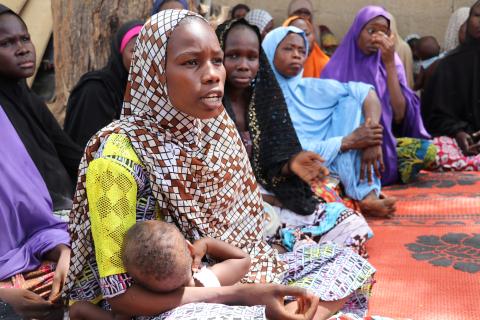Famine fears in northeast Nigeria as Boko Haram fight rages
Research snapshot1
A recent report in The Lancet describes the situation in northeast Nigeria where, amid continued fighting, over five million people are now going hungry. The prevalence of severe acute malnutrition (SAM) in July 2016 in internally displaced people (IDP) in one area was 20%, which is five times the emergency threshold. Rapid field screenings of children found levels as high as 40%. UNICEF has warned that 75,000 children could face starvation this year without aid. Although food distributions have scaled up substantially, 400,000 to 800,000 people remain cut off from help. Even in accessible areas, millions are expected to face severe food shortages this year, according to the Famine Early Warning Systems Network (FEWSNET), due to disruptions from the conflict, which have stopped farmers planting crops, displaced large populations, cut off transport, disrupted markets and driven the cost of staple food out of many people’s reach. Analysts expect high rates of malnutrition and mortality among these populations as well as a high probability of outbreaks of diseases such as measles, meningitis, diphtheria and pertussis.
The Nigerian Government has denied the severity of the hunger crisis. It has also been difficult to get donor countries to fund relief efforts. Last year, the United Nations (UN) received only about half of its US$480 million appeal for the region. “It took some time to convince the donors that the Nigerian Government could not handle it on their own”, said Toby Lanzer, the UN’s Regional Humanitarian Coordinator for the Sahel. The food crisis has in fact been going on for several years, but little aid was provided until recently because areas have been largely cut off due to military operations. This meant that humanitarian agencies did not fully understand the scale of the problem and even when they began to, they still could not access most of the affected areas. “There has been a real lack of political will to acknowledge the scale of the problem,” said Natalie Roberts, who managed the Médecins Sans Frontières (MSF) emergency operations in the region. “It is very easy now for everybody to scale up their aid and pretend that nothing happened before.”
Footnotes
1Loewenberg S. (2017) World report: Famine fears in northeast Nigeria as Boko Haram fight rages. The Lancet, Vol. 389, January 28, 2017.


